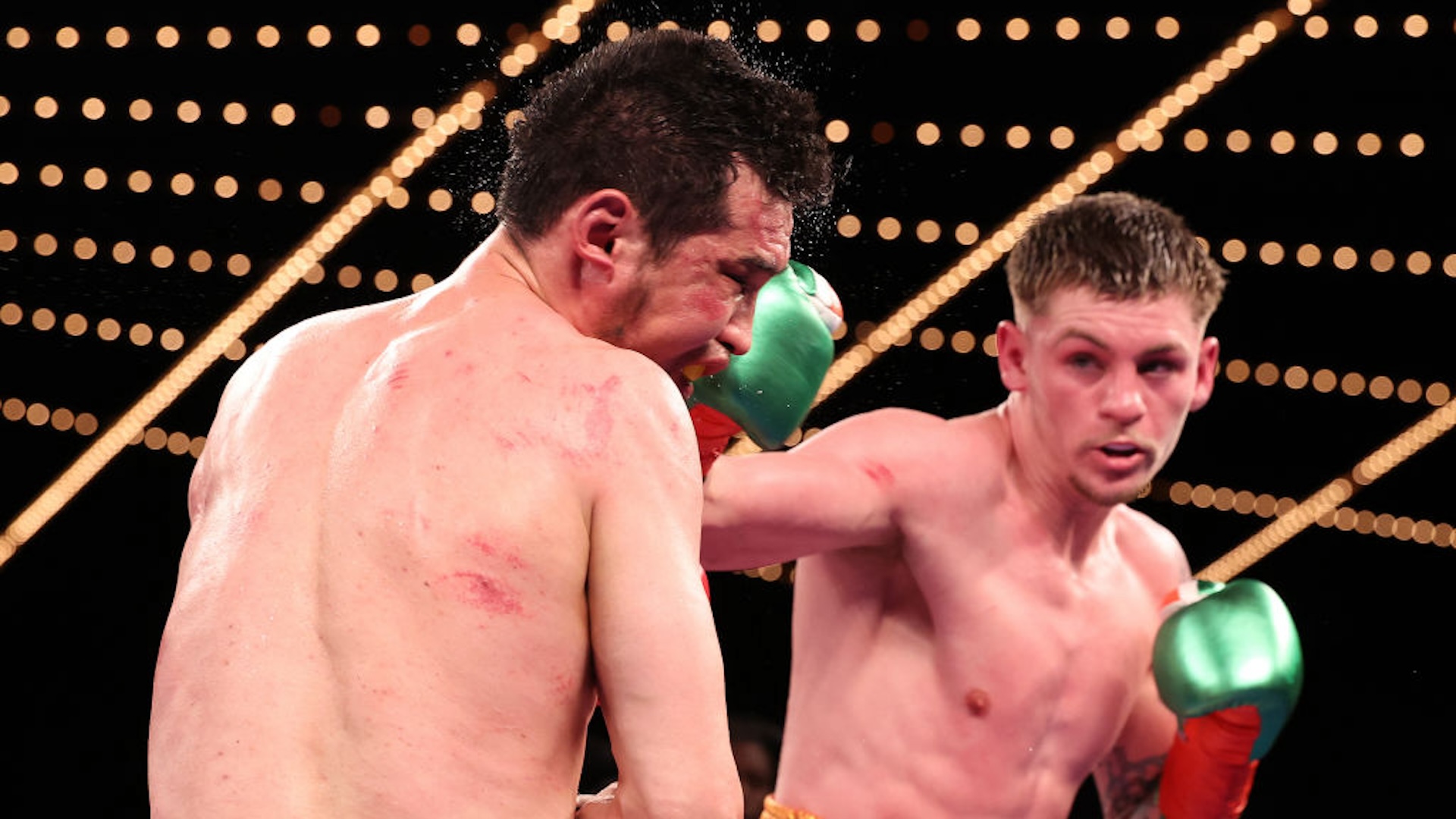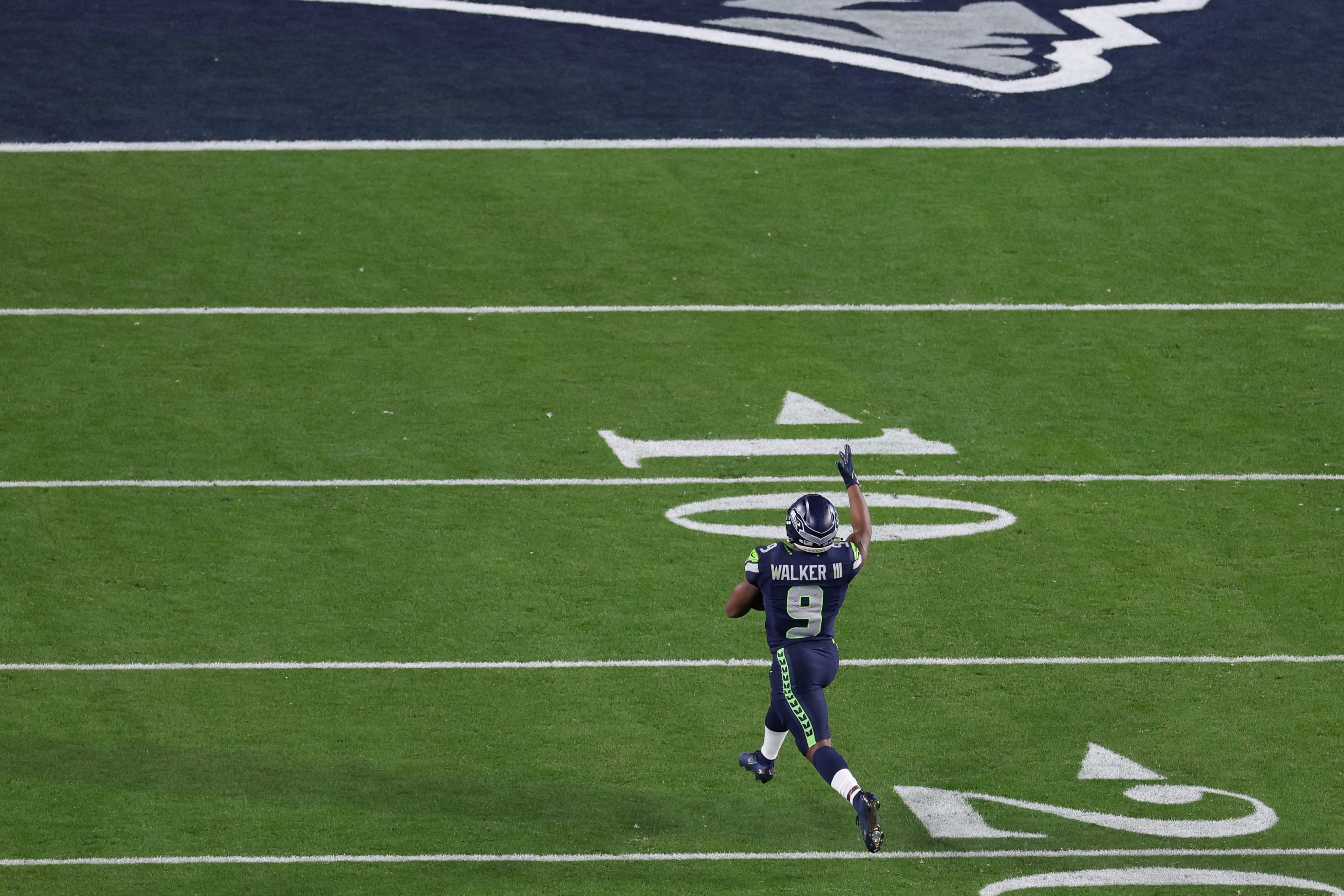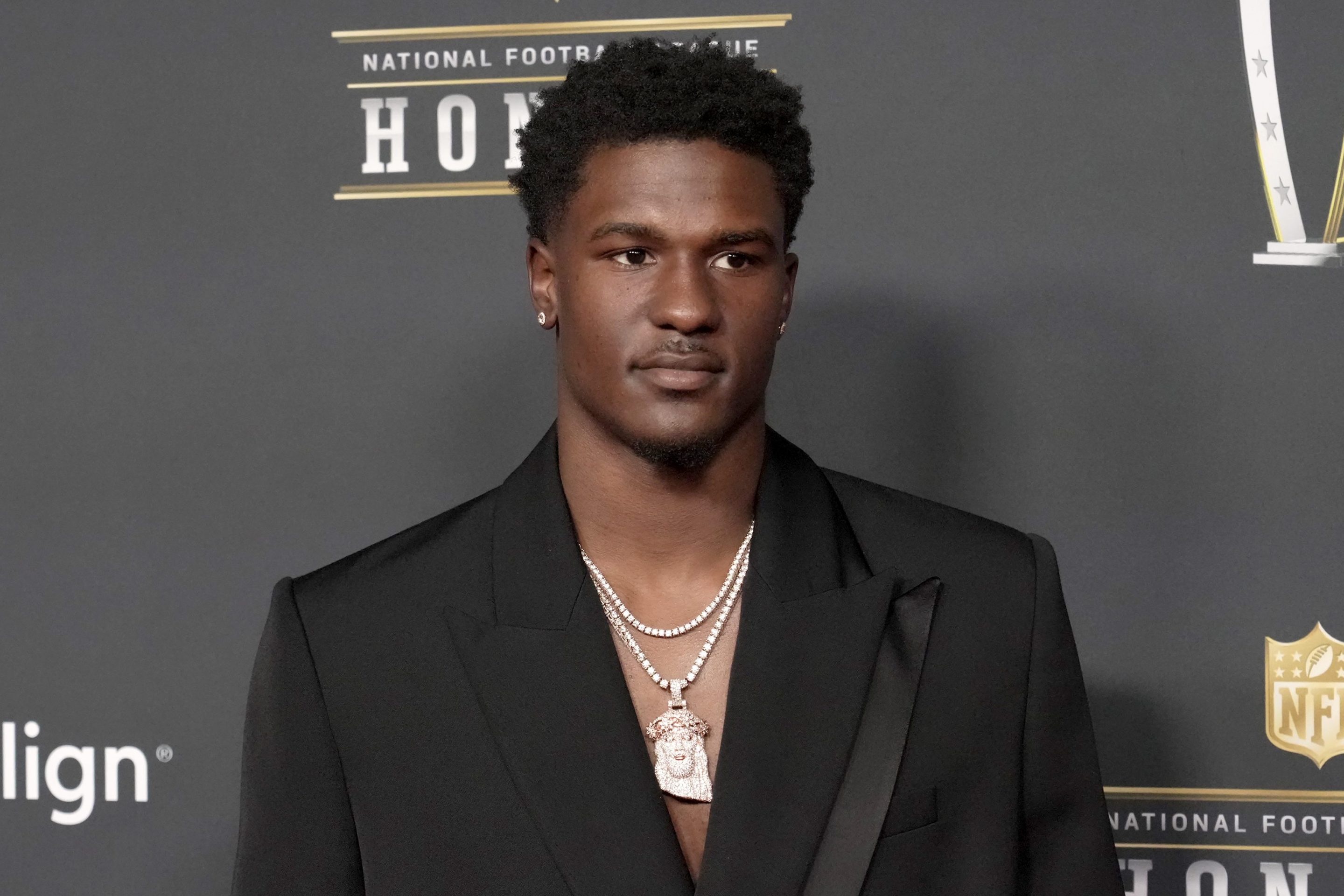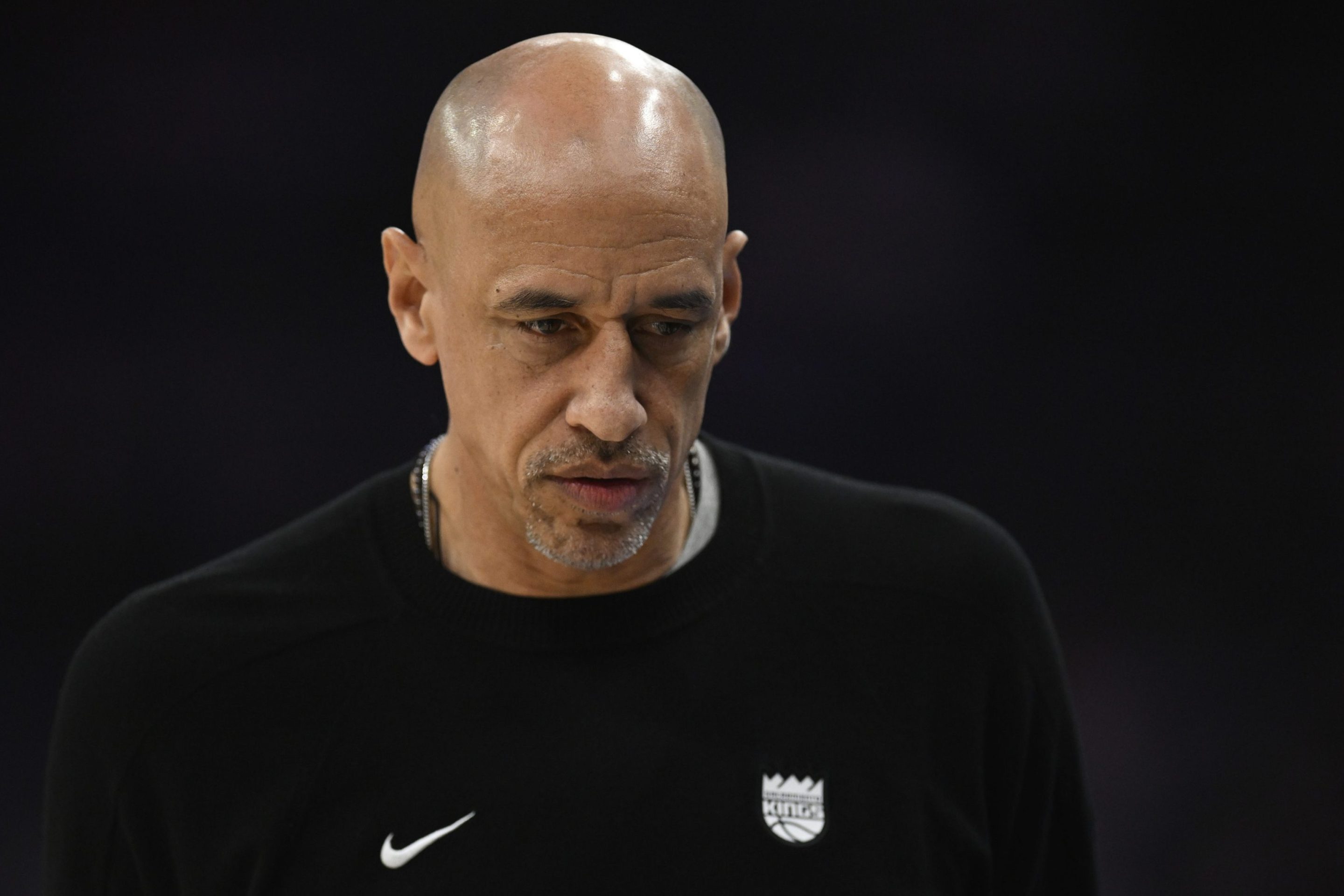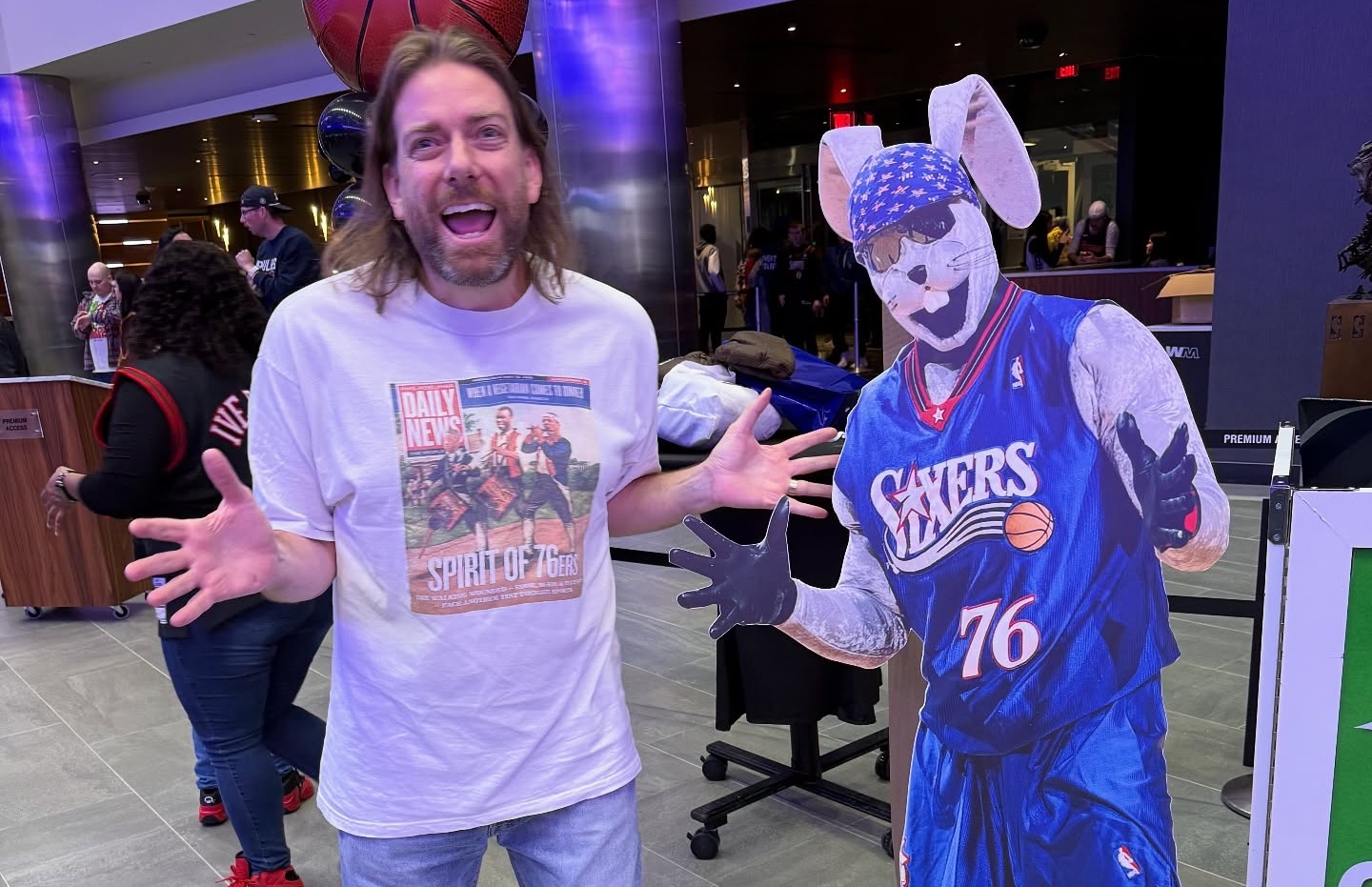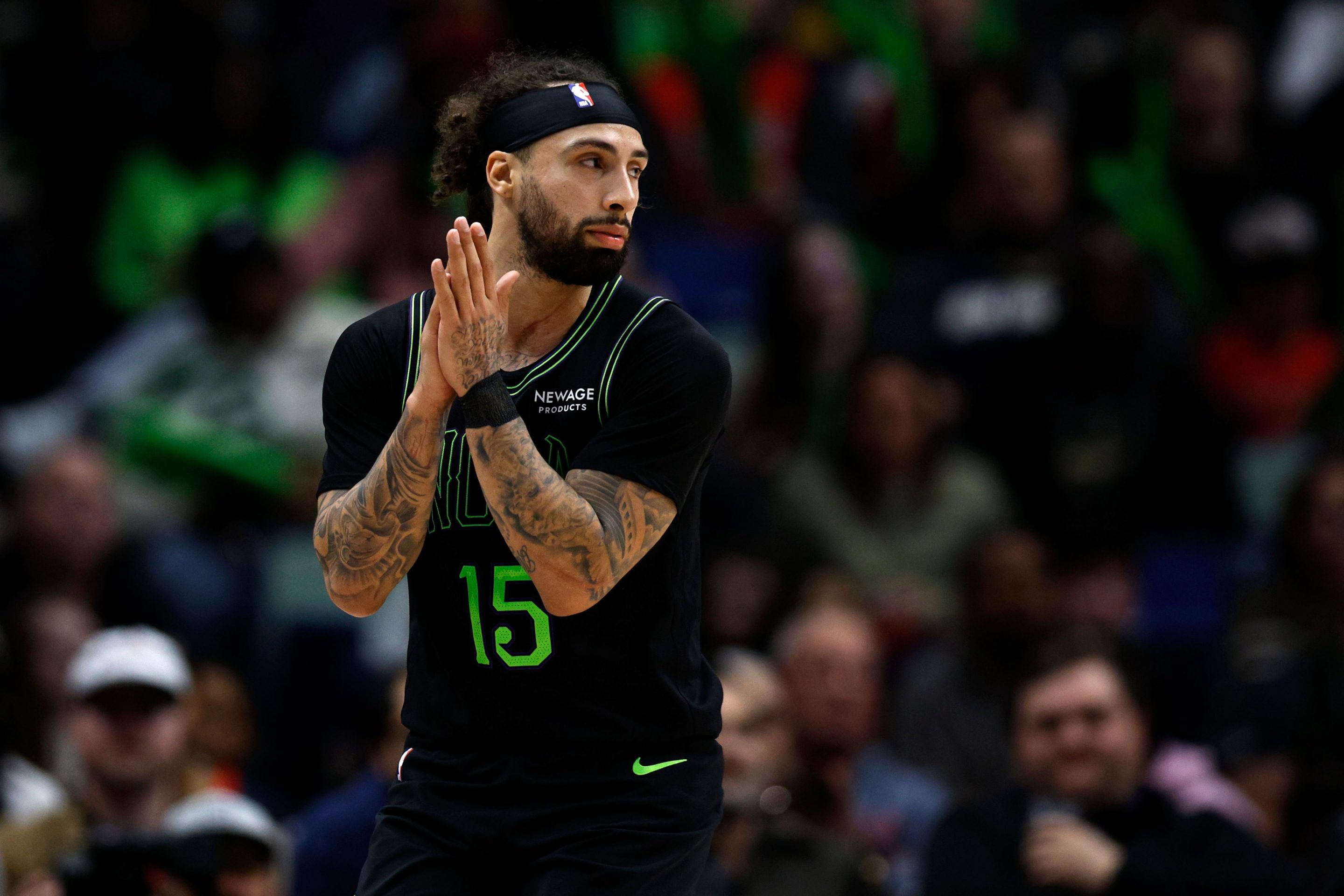NEW YORK CITY — Through the side door of the Theater at Madison Square Garden, like a rowdy swarm of wasps, a group of 30 or more young men burst in, hollering and pumping their arms and slapping backs and straddling the line between boisterous and menacing. All were wearing brand-new dark green and white velour tracksuits, as clean as could be. Both I and the man working the press credential desk stopped and stared, slack-jawed, as they streamed by: a rugby team's worth of guys in a Foot Locker store's worth of track suits, an inscrutable quasi-gang of drunkenly accented cheer. “Who are they?” I asked. The man at the desk kept gazing at them as they moved past, and then shrugged. “They’re just regular guys.”
It is the Friday night before St. Patrick’s Day in New York City, and they are just regular guys. In they streamed from every crevice, the regular guys staggering off the Long Island railroad into Penn Station and the regular guys swaggering out of the midtown Irish pubs and the regular guys who flew in from Ireland to see their boy on the big stage. There must be Irish fighters fighting at Madison Square Garden on St. Patrick’s Day weekend, just as there must be Puerto Rican fighters fighting on the weekend of the Puerto Rican Day parade, and Mexican fighters on Cinco De Mayo. This is the solemn vow of boxing: to feed the world’s tribalism, to channel it all into spectacle, to place the hopes of nations onto the shoulders of a rotating cast of young gladiators. You may accuse the sport of fueling violence, but its violence is contained in a small area, and parceled out according to strict ritual. In a world of war, boxing can count itself as a healthy diversion.
If you are an Irish boxer, this is the fucking shit. This is the dream. There was Joe Ward, a light heavyweight from Moate, who ambled to the ring extra slowly in order to time his walk to the words of "Sweet Caroline,” ducking into the ring in time to raise his arm and do a few trotting backward steps just as the BUM-BUM-BUM crescendo hit. No human can resist the neck-snapping power of this moment. Ward walked right in the front door of his sacrificial New Jersey-born opponent and clipped him in the second round with a right hand to the jaw that sent the ring doctor immediately scurrying under the bottom rope to check and make sure he was still alive.
Other small fighting nations were able to piggyback on Ireland’s night, a U.N.-like act of good will among countries full of hard men. Albania, for example. Lots of Albanian badasses in New York. One was Reshat Mati, from Staten Island, lean and hungry, who strode to the ring in a devilish black and red mask to the ominous wails of electric guitars with flashing red lights, an early taste of Halloween. His opponent, tall and long-armed Irving Macias from Monterrey, Mexico, was completely unfazed, winking at referee Sparkle Lee and giving her a fist bump as he trotted to his corner. Macias, who had a tattoo of either a pair of boxing gloves or an anatomical heart on his calf, couldn’t pull his long arms in tight enough to catch Mati, who flitted in and out and dropped short choppy right hands on him on his way to victory.
I was sitting directly behind the fight’s promoter at ringside. All night, various boxing world VIPs stopped by to chat with him. At big Vegas fights the VIPs would be actual celebrities, but at NYC fights of this size the VIPs were people like Chuck Zito, the former Hell’s Angel who looks exactly like a man who would play a mobster on TV, which he did. Zito is 71 years old, but his hair is supernaturally black, and he wore on each hand a chunky gold pinky ring the size of a small watch face. His forearms still looked strong as hell. Seemed very personable, though. He and the promoter chatted amiably as Cletus "The Hebrew Hammer" Seldin came to the ring in a flashy white and purple robe, with mutton chop sideburns and a mustache and Oakley-type shades, looking like he just stepped out of a starring role in The Iron Claw. Seldin is from Brooklyn and has been a popular NYC fighter for years because he comes to smash, and only to smash. His newly long hair just flings the sweat off his head with more savoir faire when he punches. He tends to fight from an old-timey crouch, with three primary weapons: a pushing jab to get his distance, a straight right as hard as he can, and a left hook as hard as he can. That’s pretty much what’s coming your way when you fight Cletus Seldin. You can tell that he would be a pain in the neck to spar, because he is a guy who can only go hard, always, hard. His calf muscles pop like grapefruits trying to escape from his skin.
In the first round he put his opponent, Jose Angulo, on his ass with the hard right. In the second round he put him on his ass again with a left hook. The problem with a style like Seldin’s, though, is that if you can focus while he slings his shots at you, you can get the hang of his one-note attack. By the fourth round, the unflappable Angulo had both the timing and distance, and started cracking Seldin back with some truly hellacious counter hooks to the mutton chops. Perhaps padded by his facial hair, Seldin was somehow able to absorb dozens of fantastic whacks for the next four rounds and leave with a majority decision victory. Lucky for him, since he proposed to his girlfriend in the ring after the fight, a scene which would have been dampened by a loss. She appeared to say yes.
Seldin entered and left the ring to the strains of “Real American,” making him just another flag-waver on that multicultural night. As the song played, one man with a seat on the far left aisle stood and started dancing and singing and clapping his hands over his head in a wide, exaggerated arc. Halfway through, one of his claps strayed into the aisle and smacked a passing young man—who I was standing behind—right in the face. At that, everyone froze. The man who had been clapping stopped, drew in his hands and raised his eyebrows in an expression of chagrin. The man who had been smacked stopped walking up the aisle and stood eye to eye with the other guy a little twitchily, as if he was trying and failing to keep his rage under control. Nobody moved. You could have counted a long five Mississippi as we all paused to see what was coming next. Finally, the clapper stuck out his hand in an offered handshake, an overt message of deference and apology. The man who had been smacked looked down at the hand for a moment, then turned and walked away up the aisle again, without a word. No reconciliation, but, at least, a ceasefire—the best that could be hoped for, in that environment.
The Irish national anthem, more melodic than most, was sung. The last two Irish boys were now to have their night. Feargal McCrory, of Coalisland, sleek and lean with a high-top fade, easily outmaneuvered his opponent, knocking him down with a hard liver shot in the third round. The ref didn’t see the punch and called the knockdown a slip; everyone booed, so he made up for his mistake by waving the fight off shortly afterward.
There must always be an Irish fighter who will take on the role of New York City’s favorite Irish fighter, who will come fill up this arena periodically to give the city’s thousands of descendents of Irish immigrants a taste of home. It is an important role in the NYC boxing ecosystem, one which is passed off from fighter to fighter over the years. On Friday, that crown was worn by "King" Callum Walsh, a tall 154-pounder out of Cork, with Eminem-esque bleached blond hair and the spiderweb tattoo around his elbow that signifies the desire to get a tattoo without a strong preference of what it is. Walsh had relatively pale skin but still wore white socks and white shoes, which made his steps appear like a ghostly glide. "Forged Irish Stout," read a patch on the ass of his orange and green trunks.
Walsh is rangy and moves well for his size and has above average power and instinctually wants to hit your bellybutton more than your chin, which is a good quality in a young fighter. He attacks the body not out of duty but out of preference. Because of his long arms Walsh, a southpaw, could throw lead hooks instead of jabs, which he did almost every time he reset. I don’t want to make him sound rudimentary, but mostly what he wanted to do was throw a lead right hook to the body, and then try to catch you with a straight left to the jaw right behind it. Dauren Yeleussinov, his determined if slightly outclassed opponent from Brooklyn via Kazakhstan, seemed to pick up on this pattern, and tried to slip the left and get inside Walsh’s reach, but because Walsh was nimble on his feet, it was not an easy task. In the third, a telltale stream of drool was forcefully ejected from Yeleussinov’s mouth after a body hook, but he showed no outward signs of pain. Halfway through the fight, his back was covered in angry red scrapes, a result of his constant bending at the waist and ducking straight lefts and having the bottom of Walsh’s glove skim over the surface of his shoulders. Maybe one in 10 of the lefts landed, raising an equally vivid red welt on Yeleussinov’s cheekbone. The ref stopped the fight in the ninth, a classic "accumulation of punishment" situation. Children and grandmothers flooded the ring, and Walsh posed for pictures, looking every bit the polite young man returned from war.
Of all the unruly oppressed nations, Ireland may have the most striking gap between the violence of its history and sweetness of its music. After Walsh’s fight, the arena filled with the delicate fiddles of The Wolfe Tones’ version of "Grace," which tells the tale of an Irish freedom fighter who married his sweetheart the night before he was scheduled to be executed for his role in the 1916 Easter Uprising against the Brits.
Oh Grace, just hold me in your arms, and let this moment linger
They’ll take me out at dawn and I will die.
With all my love, I place this wedding ring upon your finger
There won’t be time to share our love, for we must say goodbye
Though Ireland’s young men are no longer expected to fight and die in the streets, thousands of them still step into the ring at early ages and bang and crash and bleed. The lucky few will make it to Madison Square Garden to wrap themselves triumphantly in the flag on a night just like this. In the crowd, shaking hands with well-wishers, I saw John Duddy, who had himself served a distinguished term as New York City’s favorite Irish fighter before retiring in 2010. Eighteen years ago this very room, Duddy had fought Yori Boy Campas in one of the most violent boxing matches I have ever seen, a teeth-gritting 12-round process of each man swallowing ruinous combinations and then trying to summon the strength to give back something a little bit worse. It is a fight to watch to help you conclude that maybe you don’t want to be a professional boxer after all. Duddy won it, and got to wave the flag. Now he can rest and smile and listen to the fiddles. A time to fight, and a life to live after. But always, before the sweetness, the pain.
